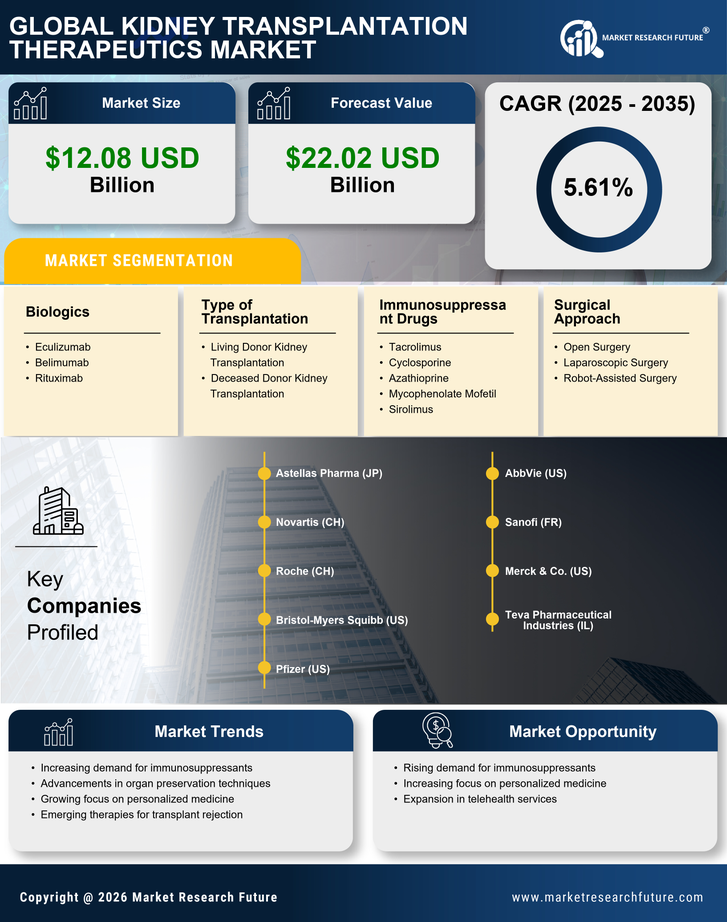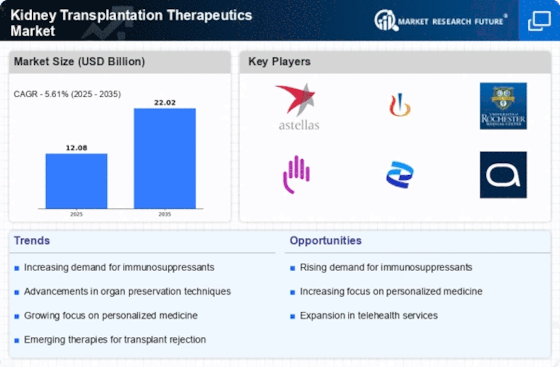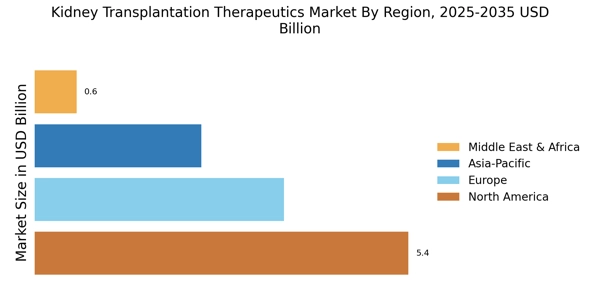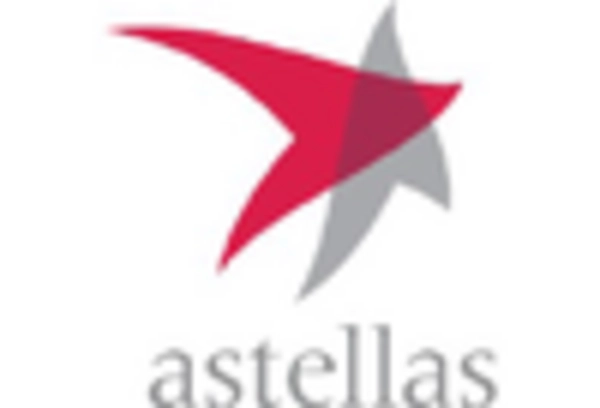Increasing Awareness and Education
The growing awareness surrounding kidney health and transplantation options is a significant driver for the Kidney Transplantation Therapeutics Market. Educational campaigns and initiatives by healthcare organizations have led to a better understanding of kidney diseases and the benefits of transplantation. This heightened awareness encourages patients to seek timely medical intervention, thereby increasing the demand for transplantation therapies. Furthermore, as more individuals become informed about the importance of organ donation, the number of available kidneys for transplantation is likely to rise. This trend not only supports the growth of the Kidney Transplantation Therapeutics Market but also fosters a culture of proactive health management among populations at risk of kidney diseases.
Rising Incidence of Kidney Diseases
The increasing prevalence of chronic kidney diseases is a primary driver for the Kidney Transplantation Therapeutics Market. According to recent statistics, approximately 850 million people worldwide are affected by kidney diseases, leading to a heightened demand for effective therapeutic solutions. This surge in kidney-related ailments necessitates advancements in transplantation therapeutics, as patients often require kidney transplants when conventional treatments fail. The Kidney Transplantation Therapeutics Market is thus witnessing a significant uptick in research and development activities aimed at improving transplant outcomes and patient survival rates. Furthermore, the growing awareness of kidney health and the importance of early diagnosis contribute to the rising demand for transplantation therapies, indicating a robust market potential in the coming years.
Regulatory Support and Policy Initiatives
Regulatory frameworks and policy initiatives aimed at improving organ transplantation processes are pivotal for the Kidney Transplantation Therapeutics Market. Governments and health authorities are increasingly implementing policies that streamline the transplantation process, enhance donor registration, and promote research in transplantation therapeutics. These initiatives are designed to address the challenges associated with organ shortages and improve patient access to life-saving treatments. Market data indicates that regions with supportive regulatory environments tend to experience higher rates of kidney transplants, which in turn stimulates the growth of the associated therapeutics market. As such, the Kidney Transplantation Therapeutics Market is likely to benefit from ongoing regulatory advancements that facilitate better healthcare delivery.
Technological Advancements in Transplantation
Technological innovations play a crucial role in shaping the Kidney Transplantation Therapeutics Market. The advent of advanced surgical techniques, such as minimally invasive procedures and robotic-assisted surgeries, has improved transplant success rates and reduced recovery times for patients. Additionally, the development of novel immunosuppressive agents and biomarker-based monitoring systems enhances the management of transplant recipients, thereby increasing the overall efficacy of kidney transplantation. Market data suggests that the introduction of these technologies is likely to drive growth in the industry, as healthcare providers seek to adopt cutting-edge solutions to improve patient outcomes. As a result, the Kidney Transplantation Therapeutics Market is expected to expand significantly, fueled by ongoing technological advancements.
Aging Population and Associated Health Challenges
The aging population presents a substantial driver for the Kidney Transplantation Therapeutics Market. As individuals age, the incidence of chronic diseases, including kidney disorders, tends to increase. This demographic shift is expected to lead to a higher demand for kidney transplants, as older adults are more susceptible to conditions that necessitate transplantation. Market projections indicate that the number of kidney transplants is likely to rise in tandem with the aging population, thereby propelling the growth of the Kidney Transplantation Therapeutics Market. Additionally, the healthcare sector is increasingly focusing on geriatric care, which may further enhance the development of tailored therapeutic solutions for older patients, ensuring better outcomes in kidney transplantation.


















